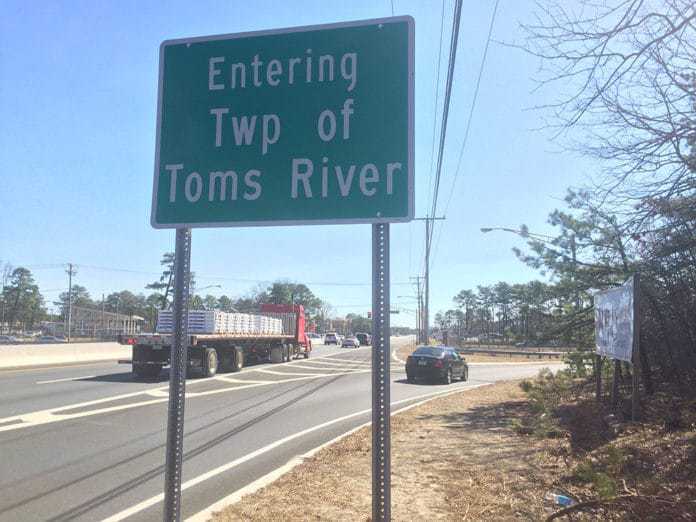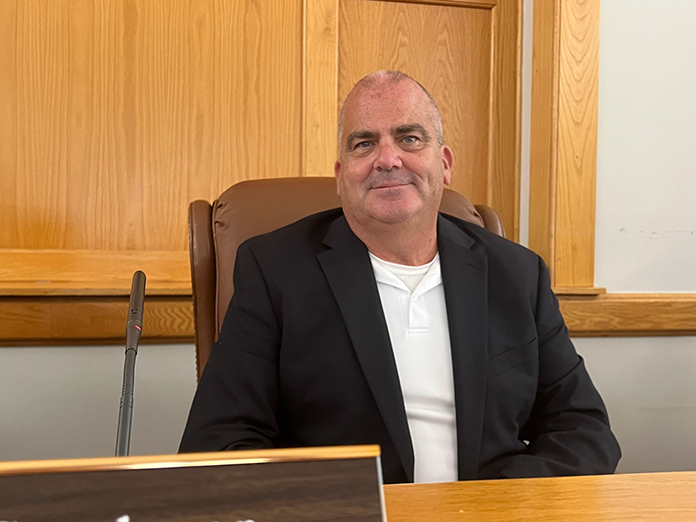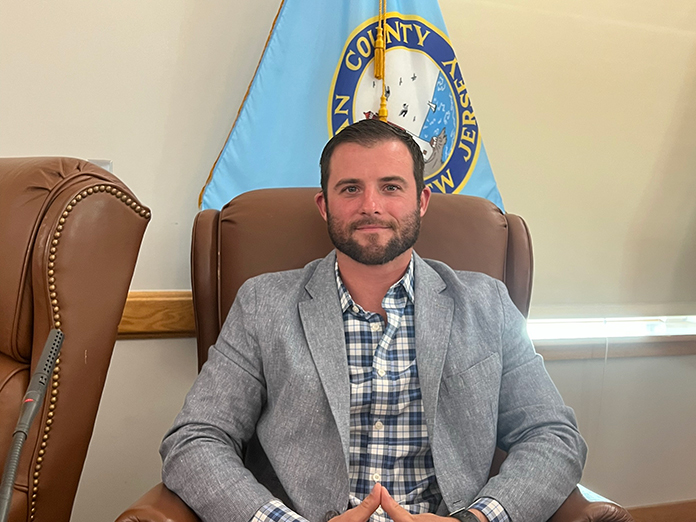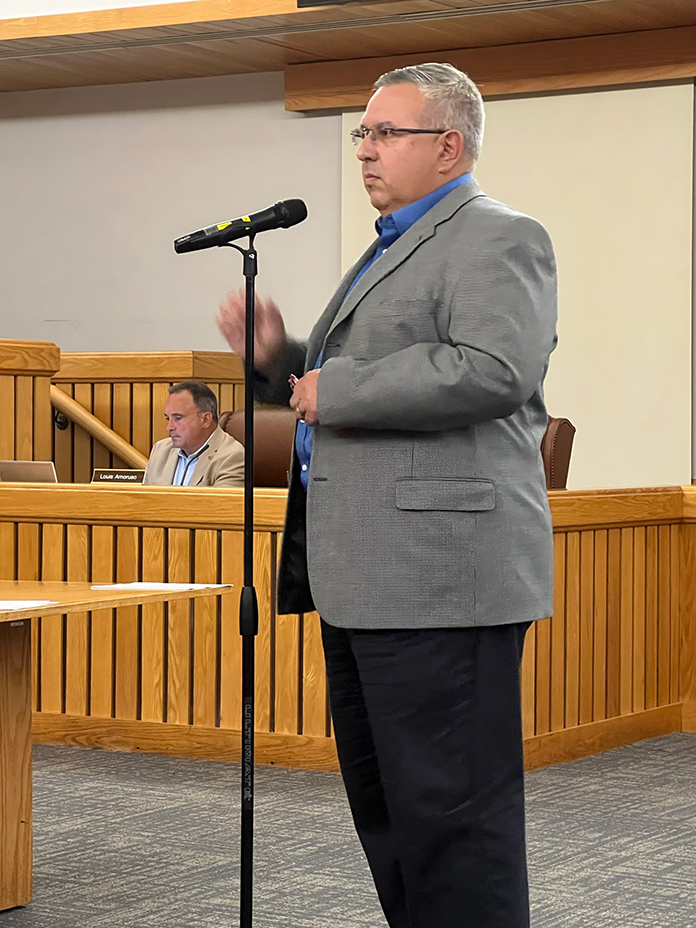
TOMS RIVER – A controversial ordinance requiring township inspections regarding home sales will be reviewed by the township’s Land Use Committee on October 18.
“As the chairman of the Land Use Committee, we oversaw introduction of this ordinance,” said Councilman Josh Kopp. “We’re also going to oversee any amendment to the ordinance.”
Kopp said the committee has met with realtors, sellers, and buyers to discuss the Municipal Certificate of Continued Use and Occupancy (MCCO) program. He indicated that most people aren’t looking for a full repeal of the ordinance and understand the need for the local law.
According to Kopp, illegal construction is at an all time high in Toms River. Public safety represents a problem that he feels the ordinance addresses and controls.
“This is about safety, safety, safety,” Council President Kevin Geoghegan reiterated. “I happened to be an EMT on the call when the girl was electrocuted in Shelter Cove.”
An eleven-year-old died in 2017 when she was swimming on a raft in a lagoon. Authorities related the incident to a metal boat lift that was not up to code.
Geoghegan said he agreed that the premise should be “buyer beware” and suggested the “buck” should stop with realtors. His remarks spurred loud dissension from the public, many of whom were presumably local realtors.
“What we’re hearing are two main issues,” Kopp said. “One is timing as far as slowing down the sale of a home. We’re also hearing the issue of fees.”

Councilman Justin Lamb organized what he called a property rights rally prior to the start of the regularly scheduled council meeting. He moved for the ordinance be repealed in total but did not receive a second to his motion.
Kopp and other members of the council shot pointed barbs at Lamb, with more than one calling Lamb’s actions “political theater.” The crowd assembled at the council meeting let out a collective protest against the assertions.
According to Lamb, one of the items that resulted in him voting no on the township budget earlier this year, was an increase in code enforcement salaries.
“I was shocked at the code enforcement inflation from $548,000 salaries and benefits to $1.2 million,” said Lamb. “This was to service this flawed ordinance.”
After Lamb’s first motion to repeal the ordinance died, Lamb proposed a second one seeking to remove portions of it. Specifically, he wanted to remove sections related to fees and violation penalties. Council Vice President Matt Lotano asked Lamb who should be picking up the bill if fees were eliminated, pointing out the burden would fall on taxpayers.
“The township needs to get this right,” Lamb replied. “If you can’t get it right, then we need to get our house in order.”
Lamb’s second attempt at changing the ordinance also died with no other council member seconding his motion.
Several members of the public spoke during the public comment portion of the meeting. Not everyone spoke in complete opposition to the ordinance.
Joan Strathern identified herself as a member of the Ortley Beach Voters and Taxpayers Association. She said her organization and many Ortley Beach residents took part in asking for inspections by the township. However, Strathern asked the council to consider fees and address any issues with delays.
“I know (inspections) happened in the town where I lived before moving to Ortley Beach,” Strathern said. “It was pretty important for having safety inspections. I hope that you will work out the kinks so that the fees are not too much for people. Certainly, the people who need to apply for this should be paying for it and not the general population.”
David Corrigan, who said he’s lived at The Landings in Pleasant Plains for 35 years, complimented the township for the good services it’s provided to him. However, he said he came to the meeting because he and his wife Nancy were going through what he referred to as a “Kafkaesque nightmare.”

“We have to deal with mindless bureaucrats,” said Corrigan, who once served as township attorney. “Notwithstanding that we have done everything right, we cannot get a CCO.
“In May of 2022, we started the process to obtain a CCO by attempting to legitimize our basement,” Corrigan explained. “The realtor told us it’s what we had to do and we submitted our survey to the township.”
According to Corrigan, the engineering department said they couldn’t read the survey and instructed them to get another one. The new survey revealed other problems on the property, which brought up issues with fencing. One included the need for a new fence around the Corrigan’s pool.
The Corrigans followed instructions to put up a new fence and then learned their CCO application was denied, in part for their failure to secure a permit for the work. The new fence erected was only three feet and needed to be six feet.
Although he once again arranged to install a fence meeting specifications, Corrigan worried the CCO would not be approved in time for the closing on his home.
“I’m really desperate,” said Corrigan as he pled for help. “We already lost one sale and we’re going to lose another sale.”
“We have a pristine house and never violated the regulations,” Corrigan continued. “We have tried to work with the town, and we get bureaucratic nonsense.”
A number of realtors repeated the call for reversal of the ordinance in full. Some said the onus was on buyers to secure home inspections, while others said it wasn’t up to the township to act as “babysitters.”
Township engineer Robert J. Chankalian said the ordinance was first contemplated as far back as 2004 and came up in other years.
“The latest and adopted version was finally adopted in December of 2021,” he said. “This was basically as a result of an outcry from residents.”
The ordinance did not go into effect until July of this year in order to facilitate education and implementation of the new law. Officials presented multiple informational seminars to approximately 1,500 attorneys and realtors to advise them of the changes and give them an opportunity to ask questions.
Individuals selling homes should consider applying for a MCCO approximately 30 days before their scheduled closing. The MCCO remains valid for 180 days.
“Since the inception of the program, we’ve had 516 applications filed,” Chankalian shared. “This is averaging about 15 per day. The ordinance allows for 12-14 days for the department’s staff to research, conduct the inspection, issue their findings, or the certificate.”
Applications completed correctly are generally turned around in six days. The department’s current work in queue totals approximately 90 submissions. Of the applications already processed, 85 percent have already been approved.
Re-inspections have been needed in less than five percent of the applications. As owners, realtors and attorneys have become more familiar with the program, the number of re-inspection requests have declined.
Chankalian shared photographs from 20 different homes that he said demonstrated the need for the inspection ordinance. Some had fire and electrical hazards, and others showed evidence of plumbing problems. Inspectors deemed some homes uninhabitable with holes in the structure and other issues suggestive of health hazards. One picture demonstrated evidence of vermin infiltration.

Flood hazards and issues related to hoarding represent some of the other issues that present when inspectors do their walkthroughs. Unpermitted work discovered by inspectors has resulted in unfair tax assessments.
When the township did reevaluations last year, one homeowner who is now looking to sell, did not allow access to their house.
“Presumably they knew they had an illegal construction and didn’t want anybody to see it,” said Chankalian. “The tax assessor now being aware of this because of the program estimates that this was over $100,000 of unpermitted, unaccounted for work. This equates to almost $1,800 a year in escaped tax dollars.”
The Land Use Committee plans to listen to problems and make recommendations to the governing body concerning revisions to the ordinance. Kopp said implementation of the policy came with a learning curve and invited the public to submit suggestions to get past the various hurdles.






